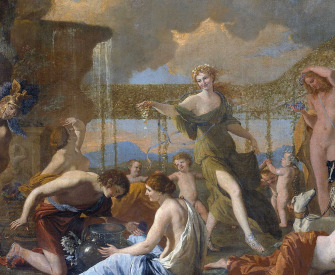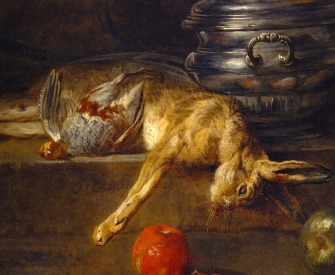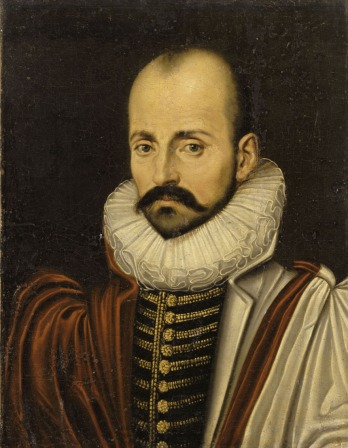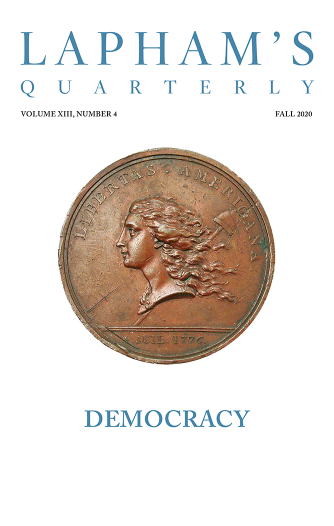To Lord Gabriel Sanchez,
Treasurer of the Spanish Court,
As I know that it will please you that I have carried to completion the duty which I assumed, I decided to write you this letter to advise you of every single event and discovery of this voyage of ours. On the thirty-third day after I left the Canaries I reached the Indian Sea; there I found very many islands, inhabited by numberless people, all of which I took possession without opposition in the name of our most fortunate king by making formal proclamation and raising standards—and to the first of them I gave the name of San Salvador, the blessed Savior, through dependence on whose aid we reached both this and the others. The Indians however call it Guanahani. I gave each one of the others too a new name; to wit, one Santa Maria de la Concepción, another Fernandina, another Isabella, another Juana, and I ordered similar names to be used for the rest.
The island Juana and the other islands of the region, too, are as fertile as they can be. This one is surrounded by harbors, numerous, very safe and broad, and not to be compared with any others that I have seen anywhere; many large, wholesome rivers flow through this land, and there are also many very lofty mountains in it. All these islands are most beautiful and distinguished by various forms; one can travel through them, and they are full of trees of the greatest variety, which brush at the stars—and I believe they never lose their foliage. At any rate, I found them as green and beautiful as they usually are in the month of May in Spain; some of them were in bloom, some loaded with fruit, some flourished in one state, others in the other, each according to its kind. The nightingale was singing and there were countless other birds of many kinds in the month of November when I myself was making my way through them. There are furthermore, in the beforementioned island Juana, seven or eight kinds of palm trees, which easily surpass ours in height and beauty, as do all the other trees, grasses, and fruits. There are also remarkable pines, vast fields and meadows, many kinds of birds, many kinds of honey, and many kinds of metals, except iron.
There are moreover in Hispaniola fine, high mountains, broad stretches of country, forests, and extremely fruitful fields excellently adapted for sowing, grazing, and building houses. The convenience and superiority of the harbors in this island and its wealth in rivers, joined with wholesomeness for man, is such as to surpass belief unless one has seen them. The trees, coverage, and fruits of this island are very different from those of Juana. Besides, this Hispaniola is rich in various kinds of spice and in gold and in mines, and its inhabitants of either sex always go as naked as when they were born, except some women who cover their private parts with a leaf or a branch of some sort, or with a skirt of cotton which they themselves prepare for the purpose.
They all of them lack, as I said above, iron of whatever kind, as well as arms, for these are unknown to them; nor are they fitted for weapons, not because of any bodily deformity—for they are well built—but in that they are timid and fearful. However, instead of arms they carry reeds baked in the sun, in the roots of which they fasten a sort of spearhead made of dry wood and sharpened to a point. And they do not dare to use these at close quarters, for it often happened that when I had sent two or three of my men to certain farmhouses to talk with their inhabitants, a closely packed body of Indians would come out—and when they saw our men approach, they would quickly take flight, children deserted by father and vice versa, and that too not that any hurt or injury had been brought upon a single one of them. On the contrary, whenever I approached any of them and whenever I could talk with any of them, I was generous in giving them whatever I had—cloth and very many other things—without any return being made to me; but they are naturally fearful and timid.
However, when they see that they are safe and all fear has been dispelled, they are exceedingly straightforward and trustworthy and most liberal with all that they have; none of them denies to the asker anything that he possesses—on the contrary they themselves invite us to ask for it. They exhibit great affection to all and always give much for little, content with very little or nothing in return. However I forbade such insignificant and valueless things to be given to them as pieces of platters, dishes, and glass, or again nails and lace points—though if they could acquire such it seemed to them that they possessed the most beautiful trinkets in the world. For it happened that one sailor got in return for one lace point a weight of gold equivalent to three golden solidi, and similarly others in exchange for other things of slighter value; especially in exchange for brand-new blancas—certain gold coins—to secure which they would give whatever the seller asks, for example, an ounce and a half or two ounces of gold, or thirty or forty pounds of cotton by weight, which they themselves had spun. Likewise they bought pieces of hoops, pots, pitchers, and jars for cotton and gold, like dumb beasts. I forbade this, because it was clearly unjust, and gave them free many pretty and acceptable objects that I had brought with me, in order more easily to win them over to me, and that they might become Christians and be inclined to love our king and queen and prince and all the peoples of Spain, and to make them diligent to seek out and accumulate and exchange with us the articles in which they abound and which we greatly need.
Lisbon, the day before the Ides of March.
From a letter. Born in Genoa in 1451, Columbus first took to the sea as a boy, later serving in the Portuguese merchant marine and working as a chart maker in Lisbon. The Spanish Crown funded his voyage to the Americas in 1492, the title “Admiral of the Ocean Sea” bestowed upon him by King Ferdinand and Queen Isabella.
Back to Issue




